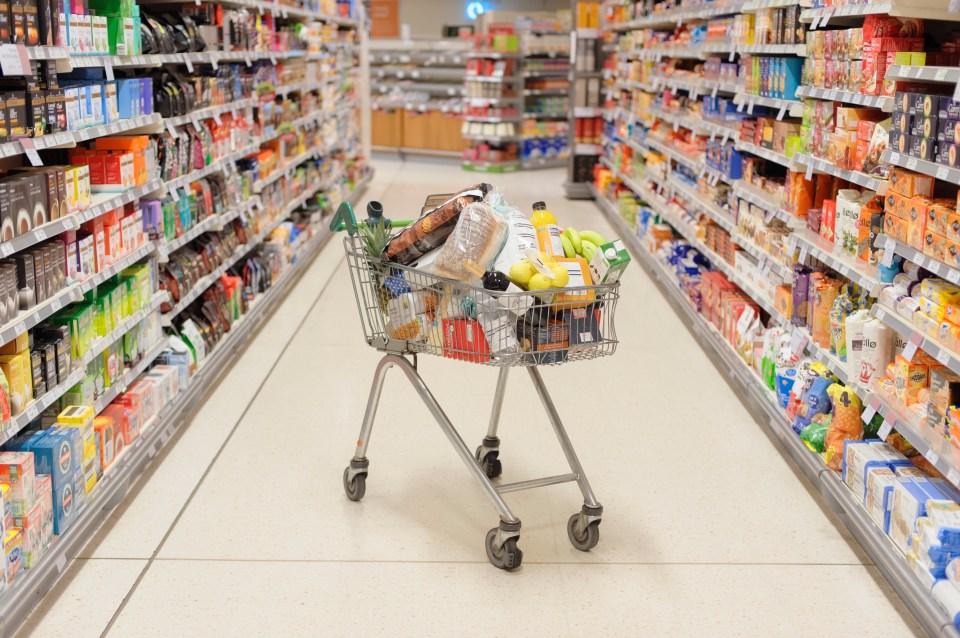THE cheapest supermarket for a basket of 76 items in July has been revealed – and Aldi has been knocked off the top spot.
The latest analysis from Which? had crowned the discounter the cheapest for the past 20 months.
The research compares the average price of a shop consisting of popular groceries at eight of the UK’s biggest supermarkets.
In July, Lidl was crowned the cheapest supermarket, where the groceries cost £128.40 on average across the month.
Members of its loyalty scheme Lidl Plus could save a further 40p.
Meanwhile, Aldi was 85p more expensive at £129.25 on average.
Read more on supermarkets
The list of 76 items included both branded and own-brand items, such as Birds Eye peas, Hovis bread, milk and butter.
The analysis includes special offer prices and loyalty prices where applicable, but not multibuys.
Meanwhile, Tesco Clubcard members would have paid £141.92 on average which is £13.92 more than at Lidl with a loyalty card, while without a Clubcard, the Tesco shop cost £145.10.
For those using a Sainsbury’s Nectar card, July’s shopping list of items averaged £144.21.
Without a Nectar card, the same items at Sainsbury’s cost £149.55.
Over the same month, Asda retained its place as one of the UK’s cheapest supermarkets for the longer list of 192 items at £474.12.
It was cheaper than Tesco with a Clubcard by £7.47 (£481.59).
Waitrose was the most expensive on average, with the bigger shop costing £538.33 – a difference of £64.21 compared to Asda.
Waitrose was also the most expensive supermarket for a smaller list of items this month, totalling £170.91 on average.
That’s a difference of £42.51 compared to Lidl (with a loyalty card).
Aldi and Lidl are not included in the comparison of the bigger list as they have a smaller range of products.
Reena Sewraz, Which? retail editor, said: “Lidl has bagged the top spot as the UK’s cheapest supermarket for the first time in 20 months, according to our latest price analysis, showing that it can beat Aldi even without loyalty prices.
“The bigger trolley of groceries shows that Asda continues to be the cheapest non-discounter supermarket – beating membership prices at Tesco, Sainsbury’s and Morrisons.
“Households are still contending with high food prices but our analysis shows it pays to shop around, simply choosing one supermarket over another could save you 25%.”
A Waitrose spokesperson said: “Our customers know that there’s more to great value than just price, and we combine excellent quality, industry-leading animal welfare standards and fantastic customer service.”
The Sun also contacted Aldi for comment.
How to save money on your food shop

Consumer reporter Sam Walker reveals how you can save hundreds of pounds a year:
Odd boxes – plenty of retailers offer slightly misshapen fruit and veg or surplus food at a discounted price.
Lidl sells five kilos of fruit and veg for just £1.50 through its Waste Not scheme while Aldi shoppers can get Too Good to Go bags which contain £10 worth of all kinds of products for £3.30.
Sainsbury’s also sells £2 “Taste Me, Don’t Waste Me” fruit and veg boxes to help shoppers reduced food waste and save cash.
Food waste apps – food waste apps work by helping shops, cafes, restaurants and other businesses shift stock that is due to go out of date and passing it on to members of the public.
Some of the most notable ones include Too Good to Go and Olio.
Too Good to Go’s app is free to sign up to and is used by millions of people across the UK, letting users buy food at a discount.
Olio works similarly, except users can collect both food and other household items for free from neighbours and businesses.
Yellow sticker bargains – yellow sticker bargains, sometimes orange and red in certain supermarkets, are a great way of getting food on the cheap.
But what time to head out to get the best deals varies depending on the retailer. You can see the best times for each supermarket here.
Super cheap bargains – sign up to bargain hunter Facebook groups like Extreme Couponing and Bargains UK where shoppers regularly post hauls they’ve found on the cheap, including food finds.
“Downshift” – you will almost always save money going for a supermarket’s own-brand economy lines rather than premium brands.
The move to lower-tier ranges, also known as “downshifting” and hailed by consumer expert Martin Lewis, could save you hundreds of pounds a year on your food shop.












